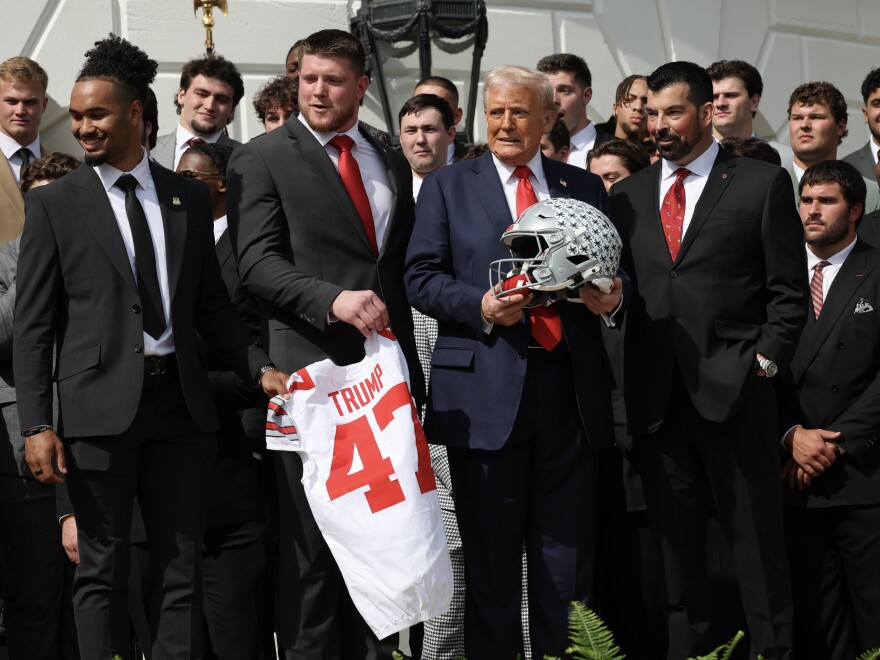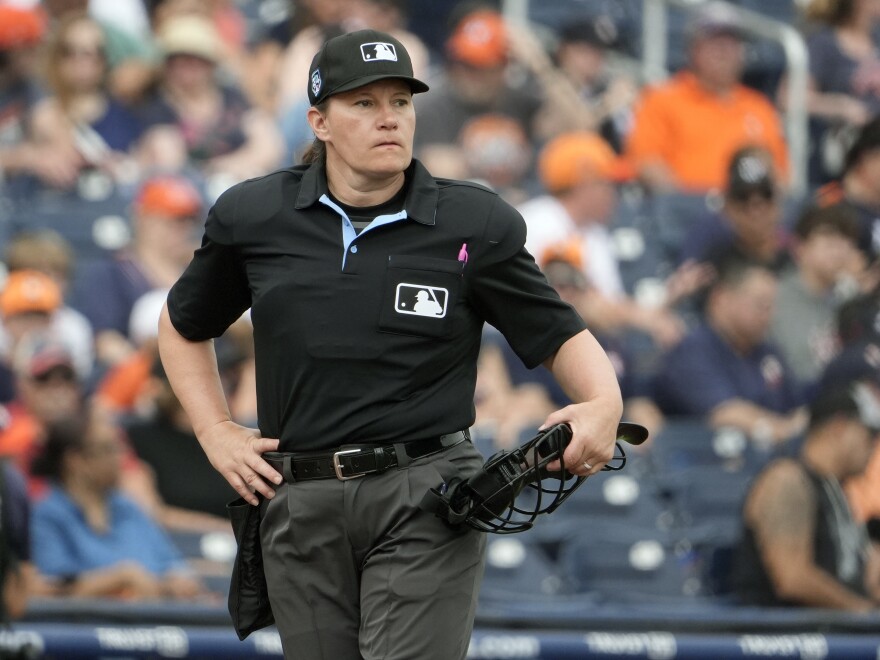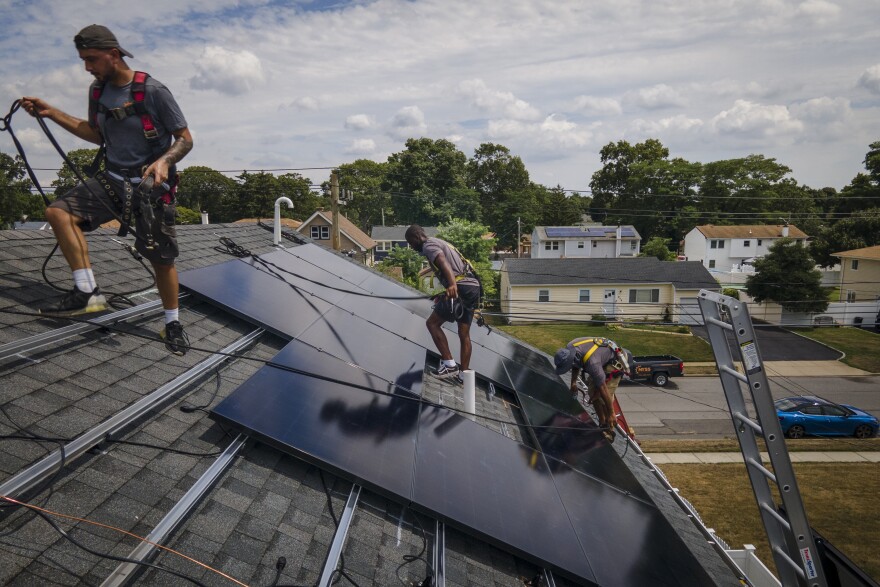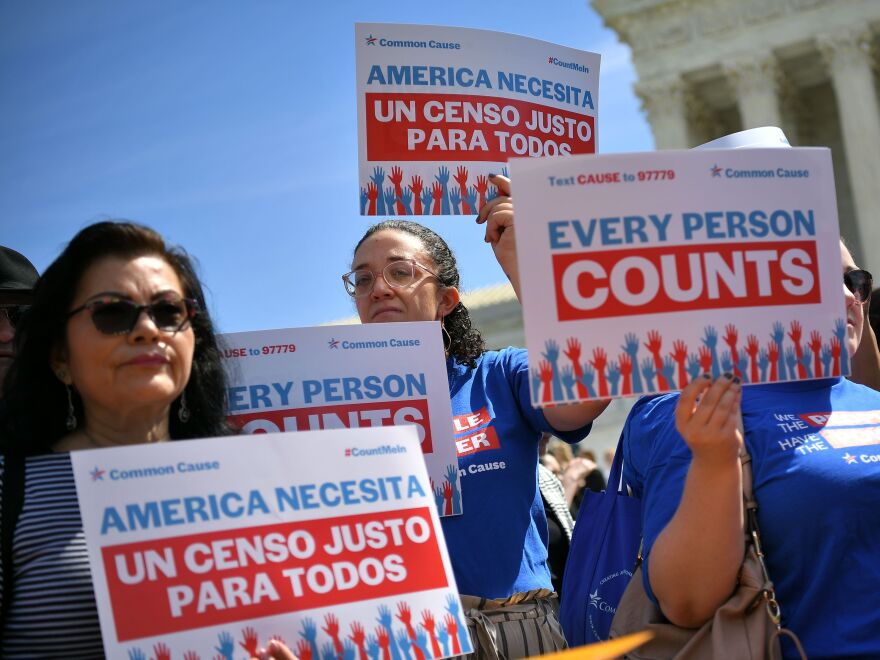Washington With a new executive order signed Thursday, President Trump has targeted college athletics by attempting to give federal agencies—such as the U.S. Department of Education, which provides funding to public universities—the authority to assist in enforcing new rules regarding athletic scholarships and “pay-for-play” licensing agreements for athletes.
The directive instructs the biggest athletic departments in the country to keep a specific amount of scholarships available for Olympic and women’s sports. It also aims to control the lucrative NIL deals (name, image, and likeness) that have significantly changed athlete income in recent years.
“The future of college sports is under unprecedented threat,” the order states. “A national solution is urgently needed to prevent this situation from deteriorating beyond repair and to protect non-revenue sports, including many women’s sports, that comprise the backbone of intercollegiate athletics, drive American superiority at the Olympics and other international competitions, and catalyze hundreds of thousands of student-athletes to fuel American success in myriad ways.”
Legal experts told NPR that it’s unclear if the order’s restrictions will hold up in court. Nevertheless, it shows the president’s growing interest in sports, particularly collegiate athletics.
Noah Henderson, a professor of sports administration at Loyola University Chicago, stated, “This may not be a binding legal framework, but it’s definitely a signal: that the federal government, and now presidential politics, are increasingly willing to intervene in the future of college sports.”
The House settlement, a class action lawsuit that has allowed Division I college athletic departments to pay athletes directly and ended the long-standing NCAA policy of amateurism, was approved one month before to Trump’s directive.
As schools reallocate resources to compensate athletes in order to remain competitive in the revenue-generating sports of basketball and football, the settlement, which permits schools to pay athletes up to an initial cap of $20.5 million, has sparked concerns about the future of non-revenue sports, including the majority of women’s and Olympic sports.
“Absent guardrails to stop the madness and ensure a reasonable, balanced use of resources across collegiate athletic programs that preserves their educational and developmental benefits, many college sports will soon cease to exist,” the directive states.
Requirements that the top-earning college athletic departments offer greater scholarship opportunities in non-revenue sports than they did in the 2024–2025 academic year are among the “guardrails” the order aims to enforce.
According to figures from 2024, the clause would be applicable to about 30 of the biggest athletic departments in the country.
The directive instructs the Department of Education, which the Trump administration is currently dismantling, to utilize Title IX enforcement, interstate commerce laws, and the distribution of government funds to influence schools as a preview of how its provisions might be implemented. Public universities like the University of Texas and Ohio State University are home to the majority of the country’s biggest athletic departments.
Those are “pretty extreme actions,” according to Sam Ehrlich, a professor who studies collegiate sports litigation at Boise State University. “Is this merely a threat, or is there something that will come of it? Will the executive branch genuinely step in to enforce this in these circumstances? And if it is investigated further, what are the unforeseen repercussions?” he continued.
The Trump administration’s directive also targets pay-for-play agreements for players’ NIL rights. Since a Supreme Court ruling in 2021, the NCAA has permitted these agreements, which have taken center stage in the financial landscape of Division I college athletics.
Nowadays, athletes—particularly those who play basketball and football—earn thousands or even millions of dollars annually in NIL deals, some of which are related to marketing campaigns but others that are essentially payment for participating.
The Trump order states that pay-for-play NIL transactions are “improper and should not be permitted by universities,” excluding those that have a “fair market value” for a brand endorsement or other justifiable reason.
For years, college athletic administrators have urged Washington to assist in containing the flood of lawsuits that have changed college athletics due to concerns about eligibility and compensation.
The executive order is in line with many of the goals recently expressed by the NCAA, which oversees collegiate athletics. Over the past ten years, litigation has severely damaged the NCAA’s long-standing rules regarding eligibility and compensation.
“The Association appreciates the Trump Administration’s focus on the life-changing opportunities college sports provides to millions of young people and we look forward to working with student-athletes, a bipartisan coalition in Congress and the Trump Administration to enhance college sports for years to come,” Charlie Baker, president of the NCAA, said in a statement.
He said that the NCAA has been and would continue to advocate for federal legislation to help shield it from lawsuits.
However, Henderson argued that Trump’s signing of the order on Thursday might “deepen partisan divides in college sports rather than create the consensus needed for long-term reform,” particularly in the Senate, where the Republican majority is seven votes short of the 60 votes needed to end a filibuster on new legislation.
The presidential action was immediately praised by the five “power conferences” in collegiate athletics. The Southeastern, Atlantic Coast, Big Ten, Big 12, and Pac-12 Conferences wrote in a joint statement: “We hope Congress sends federal legislation to President Trump’s desk as soon as possible.”
Numerous federal agencies are also instructed to enter the conflict by the order. Rules and guidelines “with respect to clarifying the status of collegiate athletes” are requested to be issued by the National Labor Relations Board to guarantee that they are not legally regarded as employees for the purposes of labor law. The Federal Trade Commission and Justice Department officials are instructed to get ready to get involved in any future lawsuits involving college athletics.
Copyright 2025 NPR






